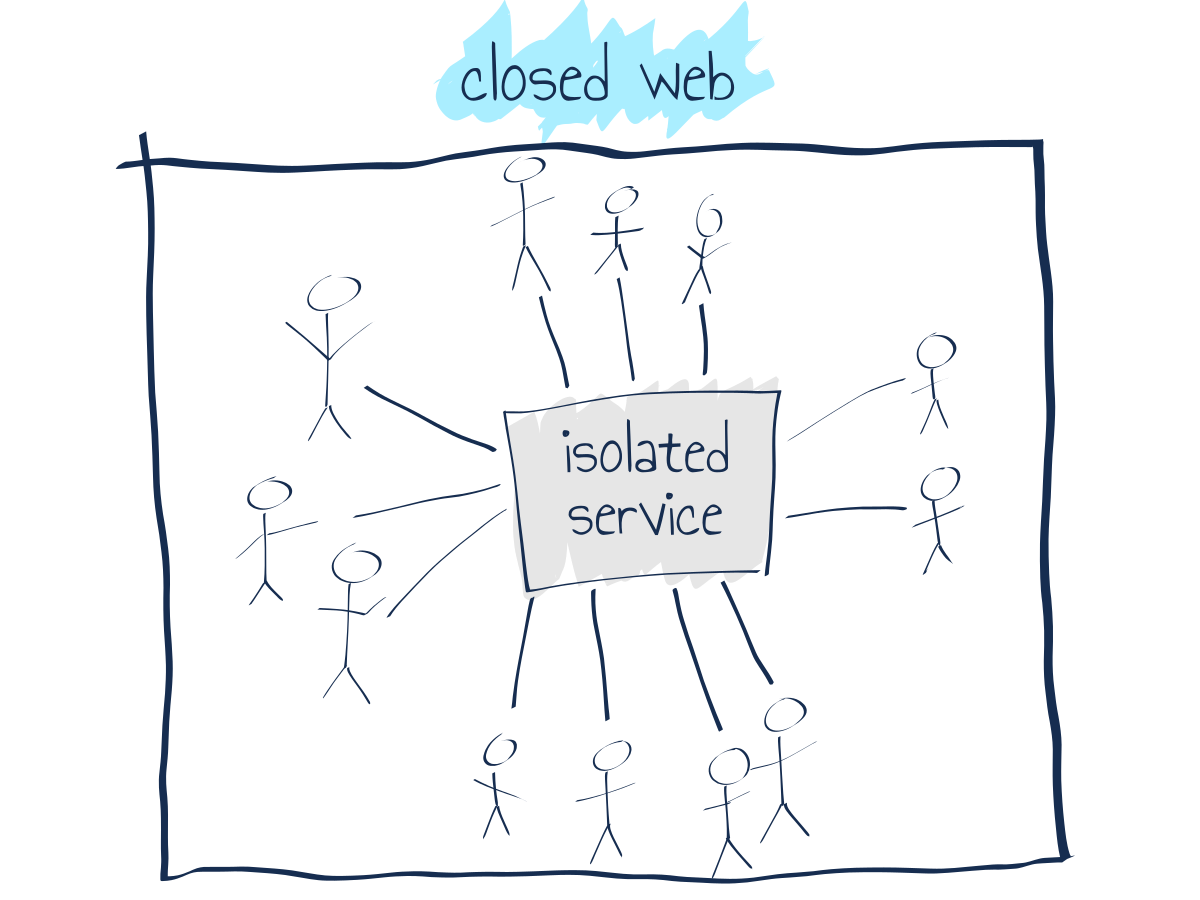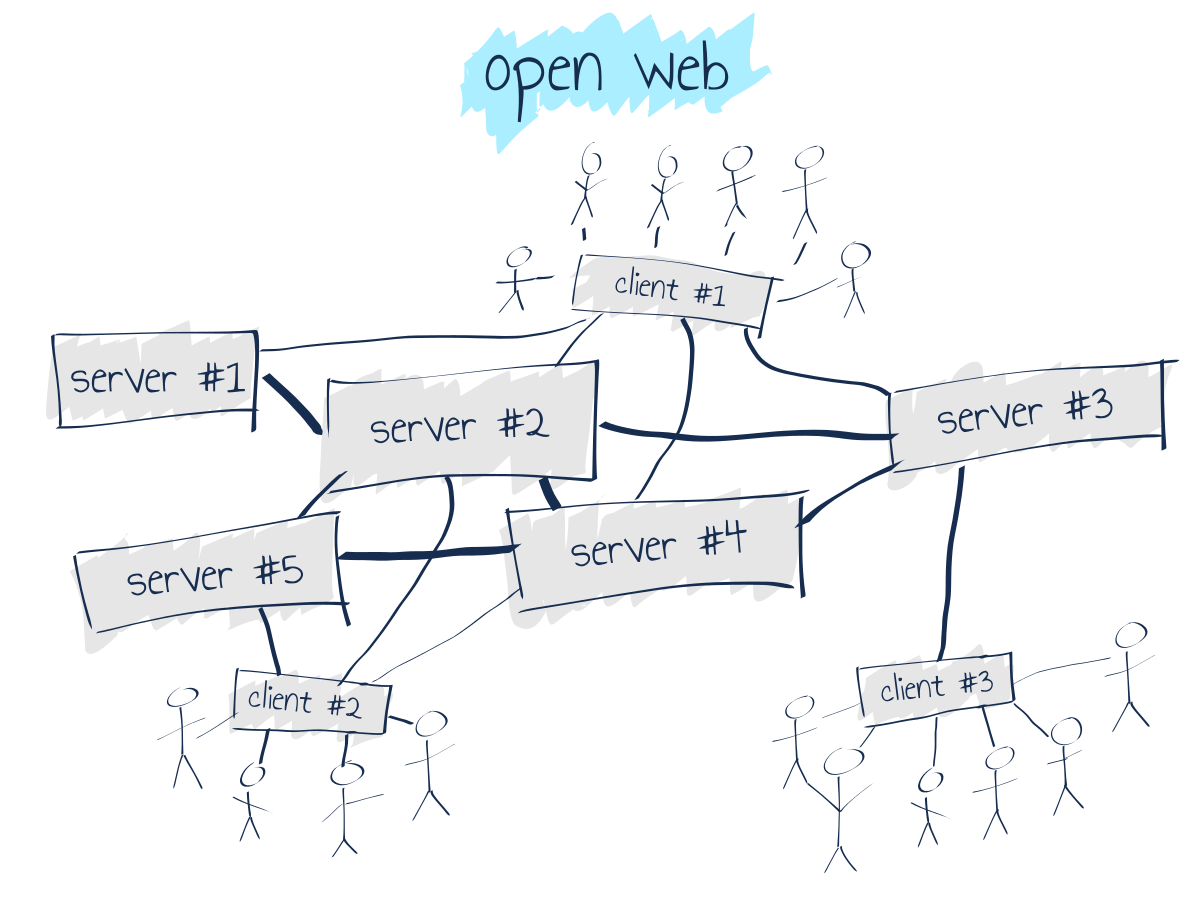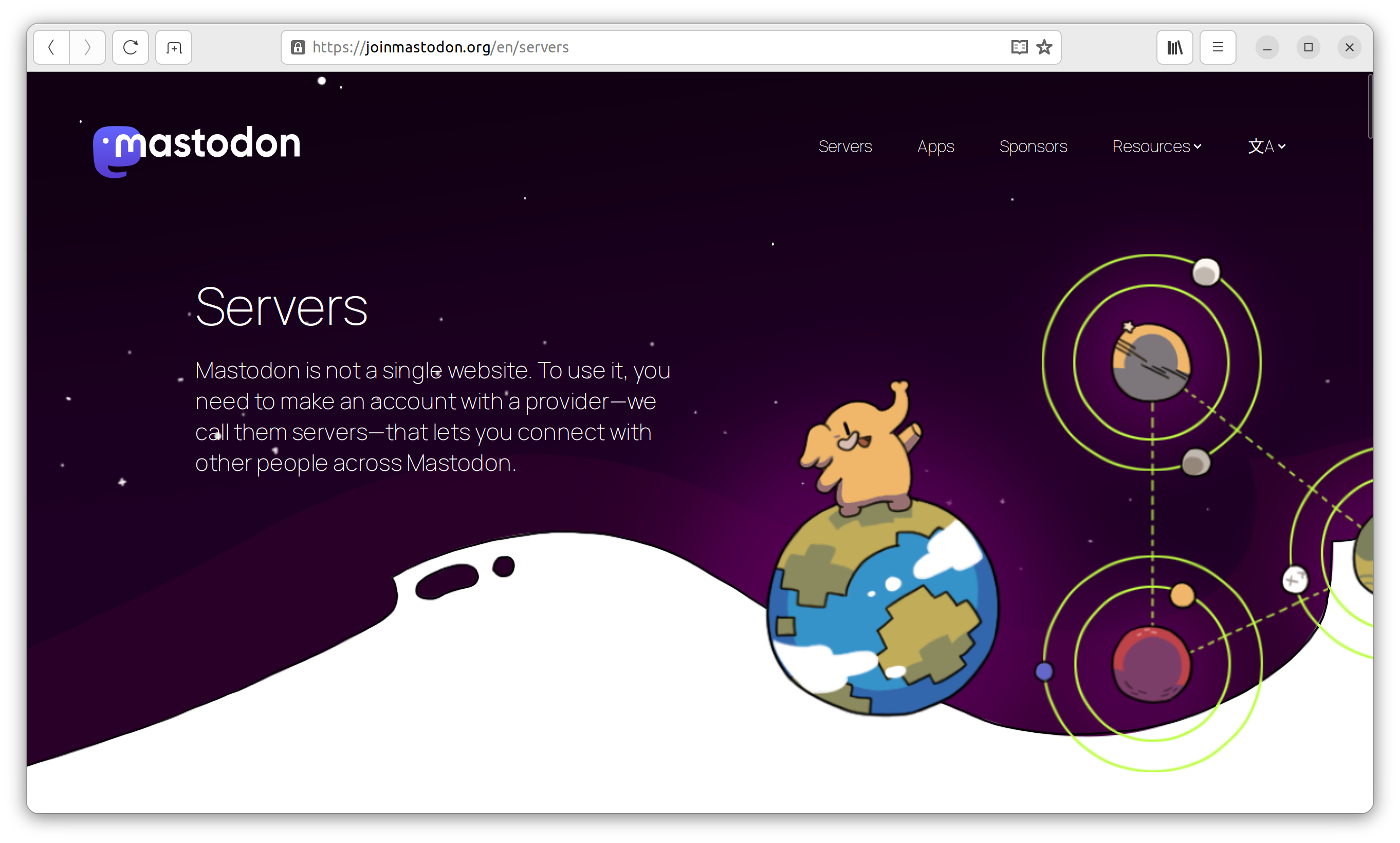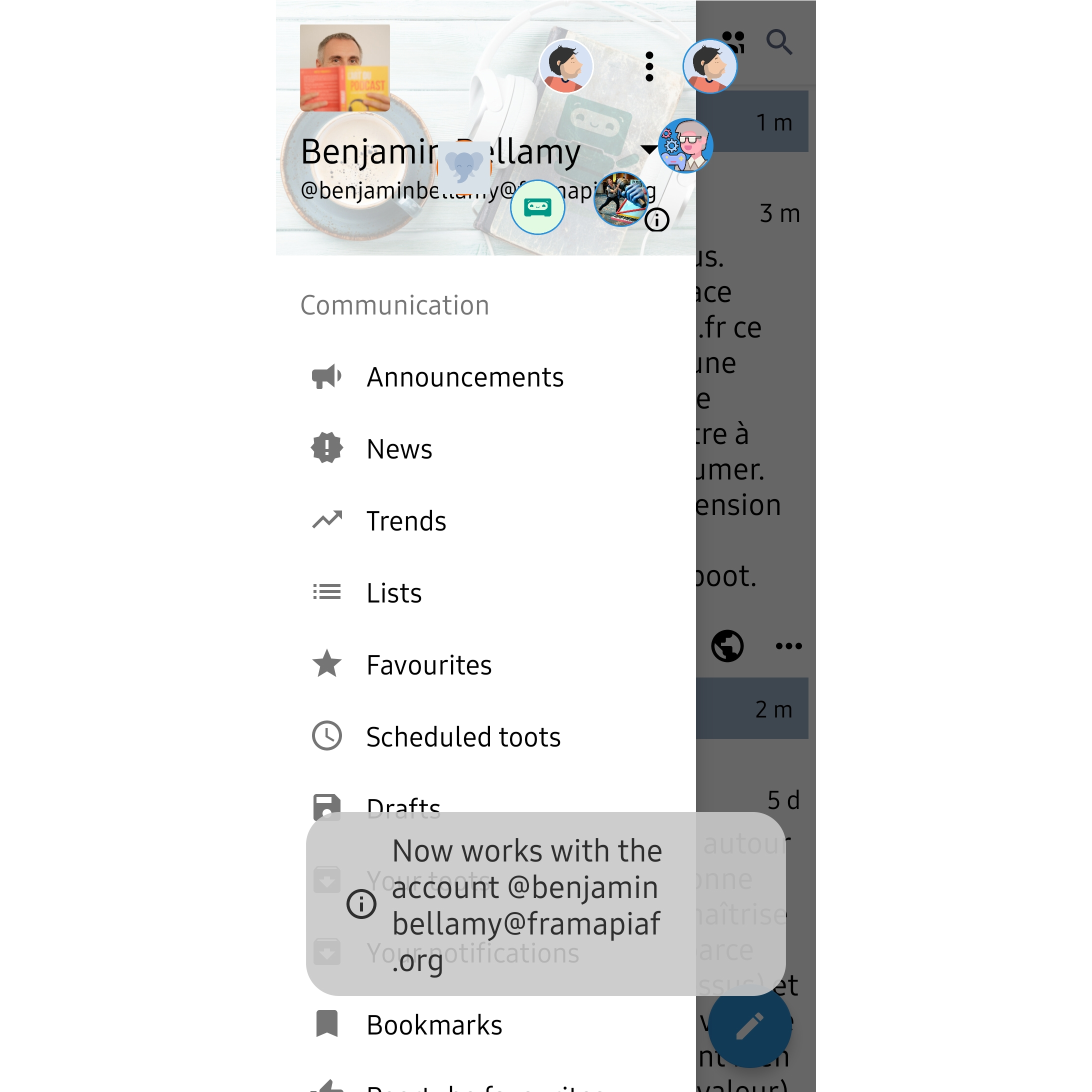
The Fediverse is so much bigger than Mastodon
Every once in a while, Mastodon is on everybody's lips. It has happened before, it will happen again. But why is it so important?
TLDR;
Mastodon relies on the ActivityPub protocol. All services using ActivityPub make the Fediverse. All Mastodon servers use ActivityPub to talk to each other, but Mastodon is just a tiny part of an open ecosystem with many other services: Peertube (video), Pixelfed (pictures), Funkwhale (music), Mobilizon (events), WriteFreely (blogging), BookWyrm (book reviews), Castopod (podcasts), and many others… All these social networks, all their content, all their users are connected to each other with no middleman involved. This is big.
With all the current fuss about Twitter, Mastodon is #1 in Twitter trends in France today. Again.

So now seems to be a good time to write a blog post about Mastodon, Castopod and the Fediverse: Castopod has been connected to Mastodon since April 2021 (read ”Your Podcast is your own Social Network” and “To the fediverse and beyond!”.)

(Source: Google Trends)
The first time we saw this much excitement about Mastodon was when it was widely released back in 2017. Many created a Mastodon account at that time. Since then, many have stayed, some have left. But in the end, it did not replace Twitter. And since it will probably not replace it this time either, let's get things straight:
Mastodon is not the ultimate alternative to Twitter.
However, what we can read these days about Mastodon — whether it's in an article, a thread, or blog post — generally assumes that Mastodon aims at replacing Twitter, and 9 times out of 10 the message falls into one of these two categories:
#1 “Mastodon is our saviour, you must quit Twitter at once and join Mastodon now and you will know eternal bliss! 😍”
or…
#2 “Mastodon sucks, it is so complicated and direct messages are not end-to-end encrypted and the admins have the power to ban you whenever they want to and they will eat you alive! 💀”
Spoiler alert: both statements are slightly exaggerated and equally inaccurate.
Mastodon is a microblogging tool, same as Twitter, but the comparison could end here.
Twitter is privately owned. When you create an account on Twitter, you agree to respect the terms and conditions of its owner. If you do not agree to them, you can – and you should – leave.
But Twitter is also a closed platform: nothing gets in, nothing gets out.

(From “How podcasting will save the open Web and free speech”)
On the other hand, Mastodon is a software. There is not one Mastodon server. There are many instances. Each one of these instances is also owned by someone — that someone could be you — who installed the Mastodon software, runs it and pays for the server bills. Same as Twitter, when you create an account on a Mastodon server (or Mastodon instance), you agree to respect the terms and conditions of its owner. Once again, if you do not agree to them, you can – and you should – leave.
But the biggest difference is that while Twitter is a closed platform, Mastodon is an open platform relying on the ActivityPub protocol: anything can get in, anything can get out.
All Mastodon servers can connect to each other.
All Mastodon servers can connect to any server speaking ActivityPub.
Welcome to The Fediverse.

(From “How podcasting will save the open Web and free speech”)
Do you see the difference?
If you are banned from Twitter then it is Game over.
If you are banned from a Mastodon instance you could join another one. Or you could start your own with your own set of rules.
And at the same time, having your own private Mastodon instance does not mean that you will be alone. Because Mastodon is federated, every user on every Mastodon server will be able to interact with every user on all other instances. Of course, as a user or admin you can ban others. The choice is yours.
The open nature of the Fediverse, its interoperability, gives you the power to compare, select and choose. This guarantees that you can leave a service that does not satisfy your needs.
When you need toothpaste you have to choose what you will put into your mouth. The same is true on the Fediverse: not only do you have the power to choose an instance, but you also must choose one.
The ecosystems that GAFAM are building are like the Eastern Europe of the 80s: the absence of choice can be reassuring but above all it shows an absence of freedom.
We are actually depriving ourselves of fair conditions of competition. Laws to prevent monopolies were put in place in the 20th century. Why don't we apply the same logic to the world of platforms?
(From the column « Il est urgent de reprendre le contrôle sur nos plateformes numériques » / “It is urgent to regain control over our digital platforms”)
So which instance should you choose to create an account? I have no idea.
Depending on your country, your language, your interests, etc, you should find the one that suits you best. This part requires a bit of research on your end. joinmastodon.org/en/servers can be a good place to start looking.

Note that you can also have several accounts on different instances. That can be useful if you have several interests (I hope you do), speak several languages… The experience will be thus better for you and for your followers. For instance, I write mostly in English about Podcasting 2.0 from @benjaminbellamy@podcastindex.social , whereas I write mostly in French about open-source from @benjaminbellamy@framapiaf.org.
Everything regarding Castopod is posted from our own instance: @castopod@podlibre.social . Therefore no one can ban Castopod from Mastodon.
(The same way all companies have their own domain name for their e-mail, they should have their own instance. Otherwise it would be like using Hotmail.com for all employees.)
If you are using a mobile app, such as Fedilab, there is a good chance that you can log into multiple accounts at the same time so as to get notifications from all of them.

But the real benefit of the Fediverse is total interoperability between heterogeneous social networks.
When you are on Mastodon, you will be able to read posts from your neighbors and from your neighbors' neighbors, but more importantly you will be able to see, hear, touch, smell or taste (why not?) content from platforms outside of Mastodon.
When you post a tweet with a link to a video that you uploaded on Youtube, all likes, RTs or comments will remain on Twitter and Twitter only. If Twitter deletes your Twitter account all these interactions will be lost. All this content does not belong to you: it belongs to Twitter. Twitter provides its audience. It is not yours.
On the Fediverse, things are totally different: if you post a video on Peertube, that video will also appear on Mastodon, and all likes, RTs or comments made on Mastodon will also go to your Peertube instance. Mastodon does not provide the audience, it just offers the connection. Therefore your audience is really yours.
Back to podcasting, the same is true: if your podcast is hosted on Anchor and you ask your audience to post comments on Apple Podcasts, these comments belong to Apple, not to you.
If your podcast is hosted on Castopod and you ask your audience to post comments on Mastodon (or any social network of the Fediverse), these comments will end up on your server and belong to no middleman.
That mechanism applies to all kinds of content:
- Peertube (video),
- Pixelfed (pictures),
- Funkwhale (music),
- Mobilizon (events),
- WriteFreely (blogging),
- BookWyrm (book reviews),
- Castopod (podcasts)
- …
Same as you may have one account for each purpose (Twitter, Instagram, Soundcloud, Youtube…) you can have an account on all of these platforms, all connected to each other. (And keep in mind that each one of them has many instances.)
@axbom@social.xbm.se drew a very nice tree to represent the Fediverse:
(axbom.com/fediverse)
So should you consider moving to the Fediverse now?
If you want to have control over the content you create, definitely yes.
Photo by Pixabay.







